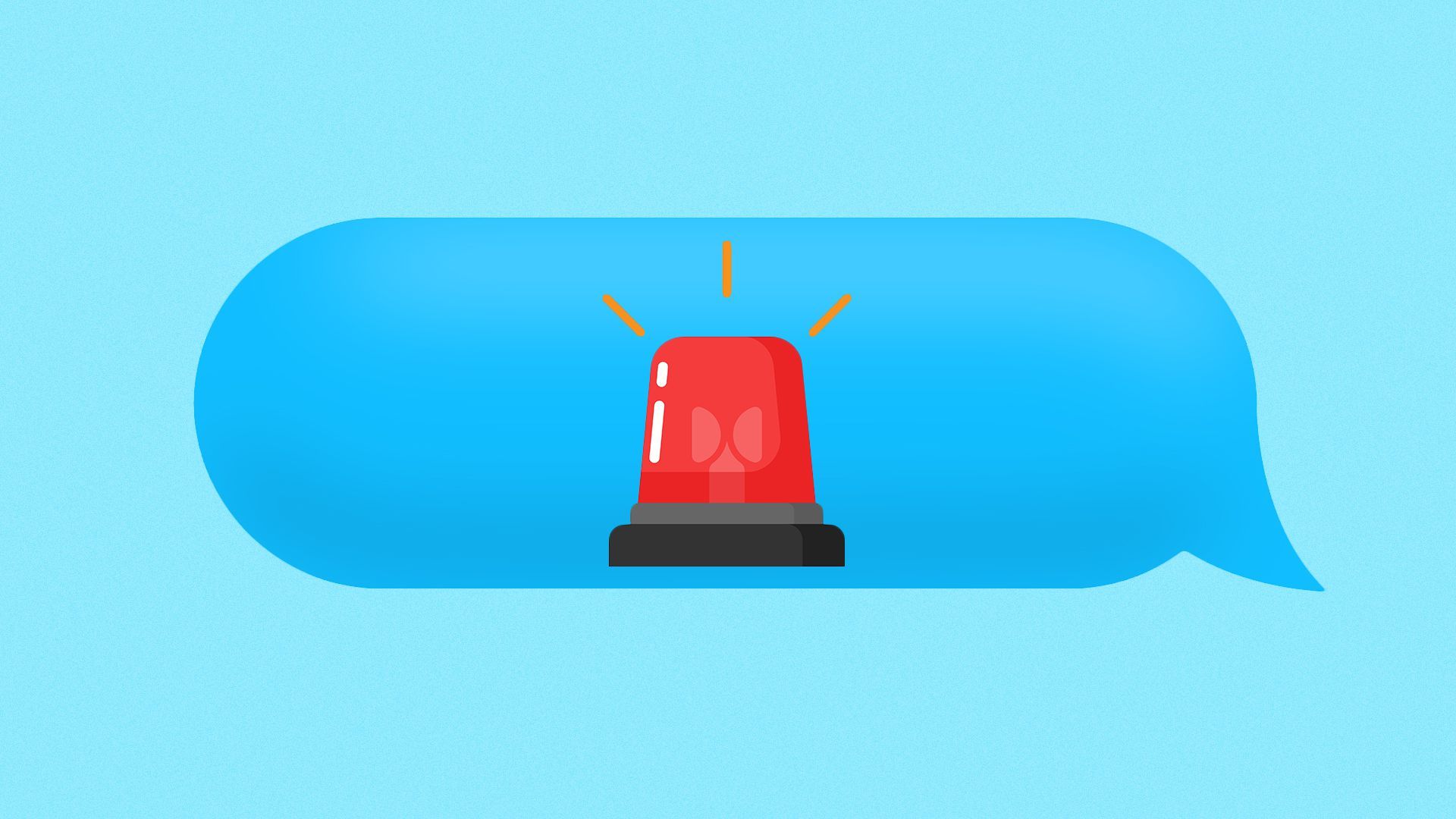911's digital makeover
Add Axios as your preferred source to
see more of our stories on Google.

Illustration: Annelise Capossela/Axios
A next-generation 911 would allow the nation's 6,000 911 centers to accept texts, videos and photos.
The big picture: U.S. emergency communications have remained stubbornly analog, but Congress is about to take another run at dragging 911 into the digital age.
Why it matters: Giving people ways to reach 911 beyond voice calls could save citizens' and first responders' lives.
Driving the news: Sen. Amy Klobuchar (D-Minn.), co-chair of the Senate Next Generation 9-1-1 Caucus, and Sen. Catherine Cortez Masto (D-Nev.) announced a bill Thursday that would create a $10 billion federal grant program for upgrades to the nation's 911 centers.
- "In a crisis, no one should be put in danger because of outdated 9-1-1 systems, and first responders, public safety officials, and law enforcement must be able to communicate seamlessly," said Klobuchar, who will push to include the funding in Democrats' reconciliation spending plan.
- Similarly, the House Energy & Commerce Committee approved its own proposal this week for a $10 billion boost for next-generation 911 as part of the $3.5 trillion spending package.
How it works: Expanding 911 to accept more kinds of digital data would add more resiliency to a system that's still built around a copper-based telephone network.
- According to the FCC, almost 3,000 911 centers are capable of receiving text messages. But none have full capabilities to take data from smartphones, said Harriet Rennie-Brown, executive director of the National Association of State 911 Administrators.
- "You have this amazing device in your hand, and we can’t use all of the information it's capable of sending us," Rennie-Brown told Axios.
What they're saying: "Right now Americans are enduring the most frequent and severe natural disasters in recorded history — meanwhile our country’s 9-1-1 operators are being asked to respond with outdated technology from a bygone era," House Energy & Commerce Committee Chairman Frank Pallone (D-N.J.) said in a statement. "Next generation 9-1-1 is about saving lives."
The other side: Republicans opposed the House proposal during a marathon markup session Monday after Democrats voted against Republican amendments.
- One amendment from Republicans would have prohibited the new funding to go to 911 centers in cities that voted on defunding their police departments.
- "Our amendment simply says let's not waste any of it," Rep. Tim Walberg (R-Mich.) said. "You don't want police support. You don't want to fund the police, deal with it yourself."
The intrigue: The House proposal would not allow the funding to go to states that divert funds from the 911 fees on consumer phone bills to non-911 purposes.
- The Federal Communications Commission, in an annual report spotlighting fee diverters, said 5 states used a portion of their 911 funds to support public safety programs unrelated to 911.
- The FCC said Pallone's home state of New Jersey, and New York, home of Senate Majority Leader Chuck Schumer, also used a portion of their funds for either non-public safety or "unspecified" uses.
- The FCC this year created a "strike force" to recommend ways to end 911 fee diversion, and that group is expected to vote on its report Friday.
